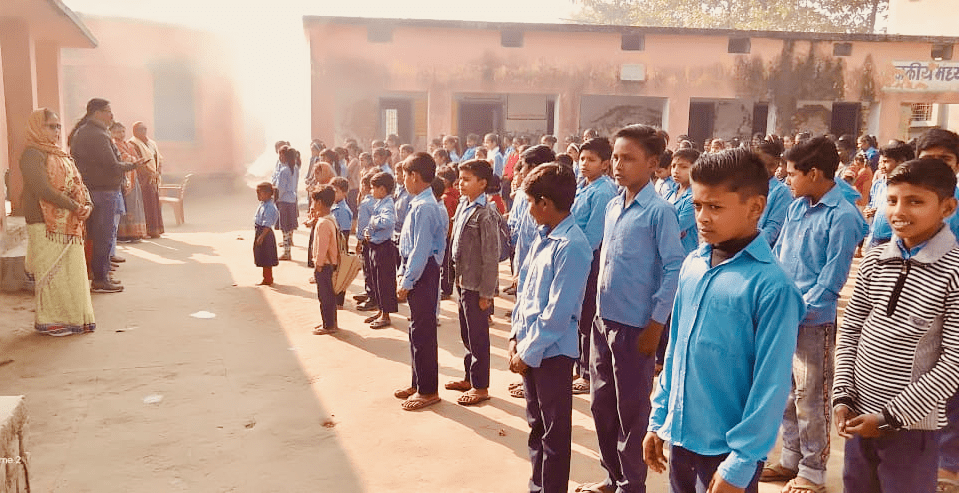
Earlier this year, UNICEF connected with us to explore if our much successful “Take it Eazy” programme could be scaled across the country. The “Take it Eazy” programme addresses the emotional wellbeing and life skills of adolescents, through stories, giving them coping strategies and getting them excited about school. And this we do through stories and art.
“Take it Eazy” was piloted in Tamil Nadu in 2020 between May and June in the heights of the first lockdown.
The state governments of Bihar, Jharkhand, and Jammu & Kashmir agreed to implement the programme and UNICEF agreed to provide the financial support. We were excited but also overwhelmed by the enormity of the task before us. Imagine this, between the three states there were over 1 crore students between the ages 13 to 17. And Kashmir is much different culturally and they speak Urdu.
Our plan was to write an audio series with 30 episodes, each with a running time of 5 to 6 minutes. The prime protagonists were teenagers Tara and Kabir and they talk about their challenges and fears. Laced with friendly humour, each episode gave the listener art and mindfulness activities to cope with their stress.
Students give a missed call to a specific number and a call will be automatically placed to their phones and they would hear the stories. This way, students didn’t need to have a smartphone or internet data. And they don’t have to pay for the calls. The stories were also available on Youtube and the links were sent over WhatsApp through 100’s of groups.
Based on our learning from the Tamil Nadu experience, we decided to include stories also for teachers, well most of them are emotionally struggling too.
While we were making preparations, the second wave and the lockdown hit us with a sledgehammer, and things got delayed.
To cut the long story short, we had to write, record, and produce the stories in Hindi and Urdu, get permission from the education departments of all the three respective states, recruit local staff, train and broadcast. Well, the pandemic was still looming large, and my colleagues were crisscrossing the states in every mode of transport that was available. We also had to plan for Diwali and Chhath pooja, which meant Bihar and Jharkand would be shut down for 10 days in October and November.
The launch date was fixed for November 22. Closer to date, Kashmir saw a spate of killings of non-Kashmiris by extremists. I was worried about my colleagues’ safety. We were working closely with the government, local organisations, and UNICEF, but who could predict these exceptional situations. My colleagues in Delhi were confident and marched on. We also took precautions as advised by the authorities.
The “Take it Eazy” programme was launched on the 22nd of November and ended on the 21st of December. Over 17 lakh children listened to the episodes on the mobile platform. Thousands of them listened every day during their morning assemblies. We received over 8000 feedbacks from students directly.
While our impact evaluation team will take longer to analyse the outcomes, I am amazed at how our team managed to pull off this herculean project during these trying times in the shortest time. Very proud!
You can listen to Tara and Kabir on NalandaWay’s Youtube Channel. They are available in Hindi and Urdu. Do listen and share it in your networks.
Written by Sriram V. Ayer, Founder and CEO of NalandaWay Foundation

